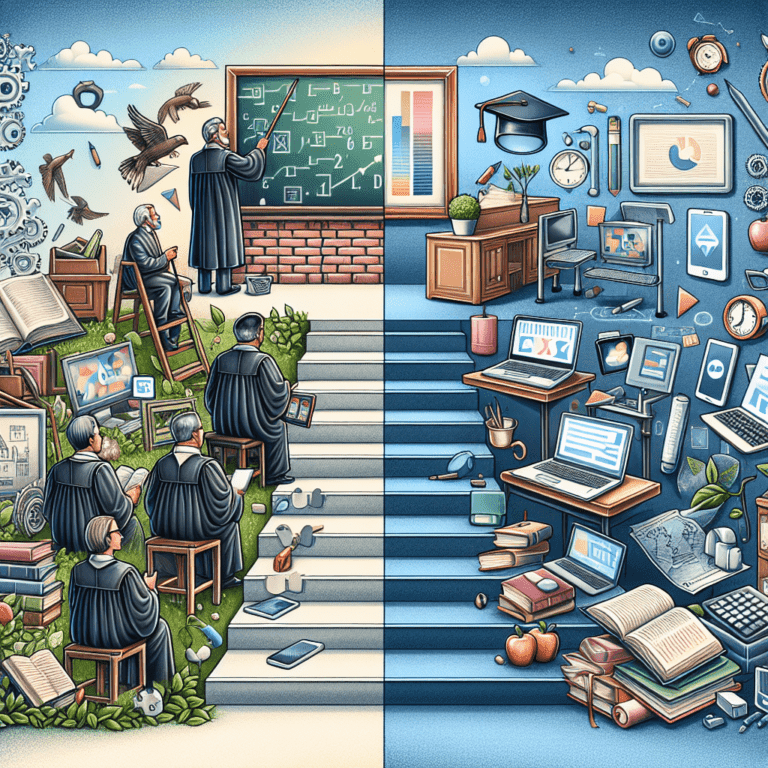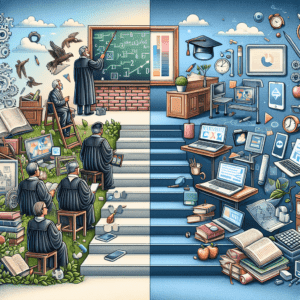The Evolution of Distance Education in the Digital Age
Distance education has come a long way since its inception, evolving from traditional correspondence courses to a dynamic, technology-driven learning environment. With the rise of the internet and digital technology, educational institutions and learners have experienced a transformation in how knowledge is accessed, acquired, and engaged with.
Historical Context
Distance education traces its roots back to the early 19th century when course materials were delivered via mail. This method primarily targeted individuals unable to attend formal classes due to geographical or personal constraints. Early pioneers, like Isaac Pitman, offered shorthand lessons through postal correspondence, marking the beginning of a shift in educational accessibility.
As the 20th century progressed, radio and television began to play a role in disseminating educational content. These mediums allowed instructors to reach larger audiences and introduced the idea of learning outside of the traditional classroom setting. However, it wasn’t until the advent of the internet in the late 20th century that distance education truly began to flourish.
The Digital Transformation
The 1990s marked a significant turning point for distance education. The introduction of online courses saw the rise of virtual classrooms, expanding access to learners across the globe. Institutions began to leverage digital platforms to offer a diverse range of programs, allowing students to learn at their own pace from the comfort of their homes. This shift not only provided convenience but also catered to diverse learning preferences.
Learning management systems (LMS) emerged as essential tools in this new educational landscape. Platforms such as Moodle and Blackboard enabled educators to create and deliver content, assess student progress, and foster communication among peers. The integration of multimedia elements, including videos, podcasts, and interactive quizzes, enhanced engagement and enriched the learning experience.
The Influence of Social Media and Collaboration Tools
Social media and collaboration tools have also played a vital role in shaping distance education. Platforms like Facebook, Twitter, and LinkedIn have become valuable resources for networking, sharing ideas, and accessing supplemental educational materials. Most notably, video conferencing applications like Zoom and Microsoft Teams have revolutionized real-time interaction between students and instructors, mimicking the classroom experience despite physical distances.
These tools have encouraged a more collaborative learning environment. Students can participate in group projects and discussions, breaking down the barriers that often accompany traditional distance education formats. This sense of community fosters better engagement and motivation, crucial factors in ensuring successful learning outcomes.
Challenges and Considerations
While distance education has seen remarkable growth, it is not without challenges. Access to technology and reliable internet service remains a significant barrier for many potential learners. Equity in educational opportunities must be addressed to ensure that all individuals can benefit from the advancements in distance education.
Moreover, the shift to online learning has prompted discussions about instructional quality. Educators must adapt their teaching methods to meet the unique demands of virtual environments, balancing content delivery with student interaction. Ongoing professional development for instructors is essential to enhance their digital literacy and pedagogical skills.
The Future of Distance Education
Looking ahead, distance education is poised for further evolution. The integration of artificial intelligence and immersive technologies such as virtual reality (VR) and augmented reality (AR) holds great promise for enhancing learning experiences. These technologies offer innovative ways to present information, facilitate simulations, and create interactive environments that can deepen understanding and retention.
Additionally, the trend towards micro-learning—where students engage with short, focused content modules—aligns well with the fast-paced nature of life in the digital age. This approach caters to learners’ busy schedules, allowing them to pursue education in manageable increments.
Conclusion
The journey of distance education in the digital age illustrates a remarkable shift in how knowledge is shared and acquired. As technology continues to advance, the potential for innovation in education remains boundless. Institutions must embrace these changes, adapting to the needs of their learners and leveraging new tools to enhance educational experiences. The evolution of distance education represents not just a response to challenges but also an opportunity to redefine the future of learning itself.







